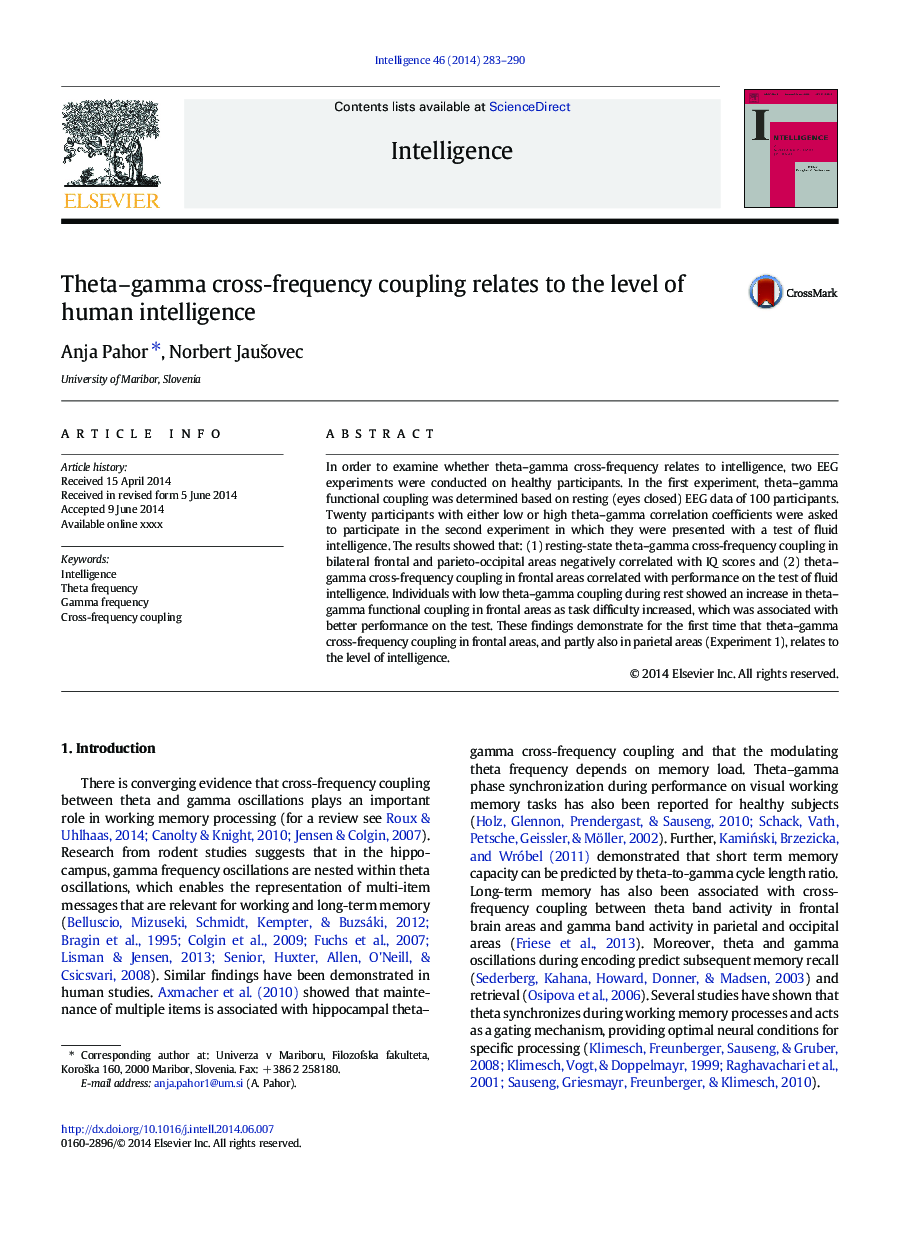| Article ID | Journal | Published Year | Pages | File Type |
|---|---|---|---|---|
| 7294423 | Intelligence | 2014 | 8 Pages |
Abstract
In order to examine whether theta-gamma cross-frequency relates to intelligence, two EEG experiments were conducted on healthy participants. In the first experiment, theta-gamma functional coupling was determined based on resting (eyes closed) EEG data of 100 participants. Twenty participants with either low or high theta-gamma correlation coefficients were asked to participate in the second experiment in which they were presented with a test of fluid intelligence. The results showed that: (1) resting-state theta-gamma cross-frequency coupling in bilateral frontal and parieto-occipital areas negatively correlated with IQ scores and (2) theta-gamma cross-frequency coupling in frontal areas correlated with performance on the test of fluid intelligence. Individuals with low theta-gamma coupling during rest showed an increase in theta-gamma functional coupling in frontal areas as task difficulty increased, which was associated with better performance on the test. These findings demonstrate for the first time that theta-gamma cross-frequency coupling in frontal areas, and partly also in parietal areas (Experiment 1), relates to the level of intelligence.
Related Topics
Social Sciences and Humanities
Psychology
Experimental and Cognitive Psychology
Authors
Anja Pahor, Norbert Jaušovec,
